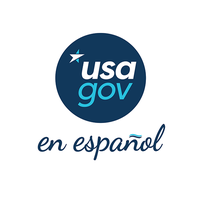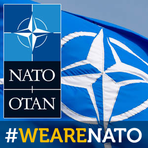The Shifting Sands of NATO: A New Era of Uncertainty
March 11, 2025, 4:08 am

Location: United States, District of Columbia, Washington
Employees: 10001+
Founded date: 2000
The North Atlantic Treaty Organization (NATO) stands at a crossroads. Once a beacon of unity, it now faces doubts and challenges. The recent comments from former President Trump cast a long shadow over the alliance. He questions NATO's reliability. He wonders if allies would come to the U.S.'s aid in times of crisis. This skepticism is not new. It echoes sentiments from his previous administration. Yet, it raises critical questions about the future of transatlantic relations.
NATO was born from the ashes of World War II. It was a shield against the Soviet threat. The principle of collective defense, enshrined in Article 5, states that an attack on one is an attack on all. This was the glue that held the alliance together. But now, cracks are appearing. Trump’s remarks suggest a transactional view of alliances. He implies that defense commitments should be contingent on financial contributions. If allies don’t meet the 2% GDP defense spending target, he hints, they may not receive U.S. protection. This is a departure from decades of U.S. foreign policy.
French President Emmanuel Macron responded to Trump’s skepticism with a reminder of history. He invoked the bonds forged during the American Revolution and the World Wars. France and the U.S. have stood together through thick and thin. Macron’s message was clear: loyalty is a two-way street. Yet, the reality is more complex. NATO’s strength lies in its unity. If that unity falters, so does the alliance.
The U.S. remains the linchpin of NATO. It contributes more to the alliance than any other member. This financial burden has been a point of contention. Trump’s administration claimed credit for pushing other nations to increase their military spending. NATO Secretary-General Jens Stoltenberg acknowledged this shift. More countries are now meeting the defense spending target. But is this enough to ensure solidarity?
Macron’s recent comments about Russia add another layer to the discussion. He framed the Russian threat as a global issue, not just a regional one. The conflict in Ukraine has implications for all of Europe. Macron’s rhetoric is bold. He positions France as a potential leader in a world where U.S. commitment is uncertain. He suggests that Europe must prepare for a future without American leadership. This is a significant shift in tone.
The French president’s call for strategic debates is telling. It reflects a desire for Europe to assert itself. But what does this mean in practical terms? Macron’s vision includes a nuclear umbrella for Europe. He wants to ensure that France retains control over its nuclear capabilities. This is a delicate balancing act. It raises questions about the future of European defense. Can Europe stand on its own, or does it still need the U.S.?
The backdrop of these discussions is a changing geopolitical landscape. The rise of China and the resurgence of Russia complicate matters. NATO must adapt to these new realities. The alliance has been criticized for being slow to respond. It needs to evolve to remain relevant. The question is whether it can do so without fracturing.
Trump’s comments also suggest a potential leverage point in trade negotiations. He views NATO as a bargaining chip. This transactional approach could undermine the very foundation of the alliance. If NATO becomes a tool for trade negotiations, its credibility will suffer. Allies may begin to question the U.S.’s commitment. Trust is the bedrock of any alliance. Once broken, it is hard to rebuild.
The recent NATO ambassador confirmation hearing highlighted this tension. Matt Whitaker assured that the U.S. commitment to NATO would be “ironclad.” Yet, the mixed messages from Trump create uncertainty. Allies are left wondering where they stand. This ambiguity can lead to hesitance in cooperation. It can sow discord among member nations.
The future of NATO hangs in the balance. The alliance must navigate these turbulent waters. It needs to reaffirm its commitment to collective defense. Allies must work together to address shared threats. This requires open dialogue and mutual respect. The stakes are high. A fractured NATO could embolden adversaries.
As the world watches, the question remains: can NATO adapt to the new era? Will it remain a stronghold of democracy and security? Or will it succumb to the pressures of nationalism and isolationism? The answers lie in the hands of its leaders. They must choose unity over division. They must prioritize the alliance’s core values. Only then can NATO thrive in an uncertain world.
In conclusion, the shifting sands of NATO present both challenges and opportunities. The alliance must confront its doubts head-on. It must reaffirm its purpose and commitment to collective defense. The future of transatlantic relations depends on it. The world is watching. The time for decisive action is now.
NATO was born from the ashes of World War II. It was a shield against the Soviet threat. The principle of collective defense, enshrined in Article 5, states that an attack on one is an attack on all. This was the glue that held the alliance together. But now, cracks are appearing. Trump’s remarks suggest a transactional view of alliances. He implies that defense commitments should be contingent on financial contributions. If allies don’t meet the 2% GDP defense spending target, he hints, they may not receive U.S. protection. This is a departure from decades of U.S. foreign policy.
French President Emmanuel Macron responded to Trump’s skepticism with a reminder of history. He invoked the bonds forged during the American Revolution and the World Wars. France and the U.S. have stood together through thick and thin. Macron’s message was clear: loyalty is a two-way street. Yet, the reality is more complex. NATO’s strength lies in its unity. If that unity falters, so does the alliance.
The U.S. remains the linchpin of NATO. It contributes more to the alliance than any other member. This financial burden has been a point of contention. Trump’s administration claimed credit for pushing other nations to increase their military spending. NATO Secretary-General Jens Stoltenberg acknowledged this shift. More countries are now meeting the defense spending target. But is this enough to ensure solidarity?
Macron’s recent comments about Russia add another layer to the discussion. He framed the Russian threat as a global issue, not just a regional one. The conflict in Ukraine has implications for all of Europe. Macron’s rhetoric is bold. He positions France as a potential leader in a world where U.S. commitment is uncertain. He suggests that Europe must prepare for a future without American leadership. This is a significant shift in tone.
The French president’s call for strategic debates is telling. It reflects a desire for Europe to assert itself. But what does this mean in practical terms? Macron’s vision includes a nuclear umbrella for Europe. He wants to ensure that France retains control over its nuclear capabilities. This is a delicate balancing act. It raises questions about the future of European defense. Can Europe stand on its own, or does it still need the U.S.?
The backdrop of these discussions is a changing geopolitical landscape. The rise of China and the resurgence of Russia complicate matters. NATO must adapt to these new realities. The alliance has been criticized for being slow to respond. It needs to evolve to remain relevant. The question is whether it can do so without fracturing.
Trump’s comments also suggest a potential leverage point in trade negotiations. He views NATO as a bargaining chip. This transactional approach could undermine the very foundation of the alliance. If NATO becomes a tool for trade negotiations, its credibility will suffer. Allies may begin to question the U.S.’s commitment. Trust is the bedrock of any alliance. Once broken, it is hard to rebuild.
The recent NATO ambassador confirmation hearing highlighted this tension. Matt Whitaker assured that the U.S. commitment to NATO would be “ironclad.” Yet, the mixed messages from Trump create uncertainty. Allies are left wondering where they stand. This ambiguity can lead to hesitance in cooperation. It can sow discord among member nations.
The future of NATO hangs in the balance. The alliance must navigate these turbulent waters. It needs to reaffirm its commitment to collective defense. Allies must work together to address shared threats. This requires open dialogue and mutual respect. The stakes are high. A fractured NATO could embolden adversaries.
As the world watches, the question remains: can NATO adapt to the new era? Will it remain a stronghold of democracy and security? Or will it succumb to the pressures of nationalism and isolationism? The answers lie in the hands of its leaders. They must choose unity over division. They must prioritize the alliance’s core values. Only then can NATO thrive in an uncertain world.
In conclusion, the shifting sands of NATO present both challenges and opportunities. The alliance must confront its doubts head-on. It must reaffirm its purpose and commitment to collective defense. The future of transatlantic relations depends on it. The world is watching. The time for decisive action is now.
